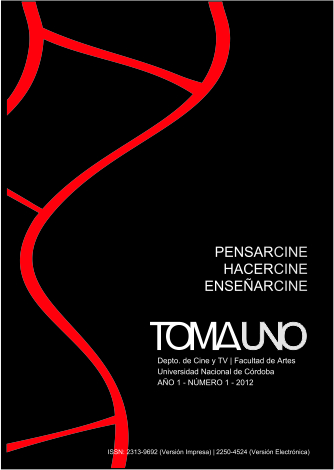From original space to the cosmopolitan city: the representation of national identity in Brazilian Tropicalista Cinema
DOI:
https://doi.org/10.55442/tomauno.n1.2012.8573Keywords:
Cinema & Identity, Brazilian Society, Imaginary in Film, Brazilian CinemaAbstract
Through this article we intend to study the way Brazilian tropicalist cinema represented, in a historical period convulsed by political changes associated to a new outbreak of dictatorship and the beginning of a process of redemocratization, the imaginary present in society about urban space. We will establish a comparative analysis of two paradigmatic films of Cinema Novo movement, that represent the start and the end of its last phase (named canibalist or tropicalist). We refer to Macunaíma (Joaquim Pedro de Andrade, 1969) and Bye Bye Brasil (Carlos Diegues, 1979), that install a debate about the diverse significations that the dialog of different territories (country, forest and city) produces in the elaboration of a conception and a discourse about national identity.
KEY WORDS:
Downloads
Downloads
Published
How to Cite
Issue
Section
License
This work is licensed under Creative Commons Attribution-NonCommercial-NoDerivs 2.5 Argentina .


































